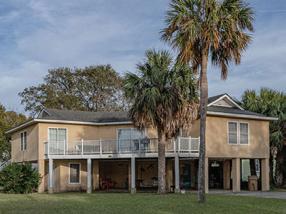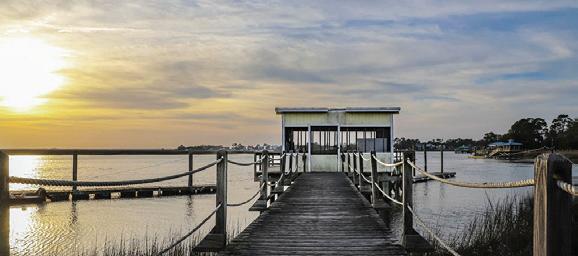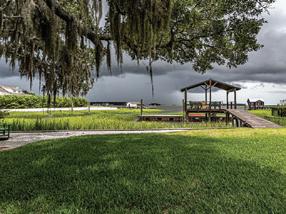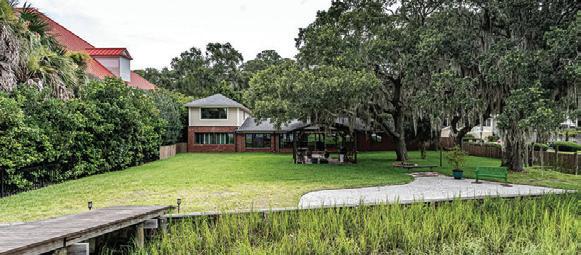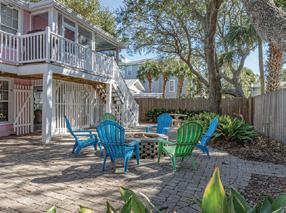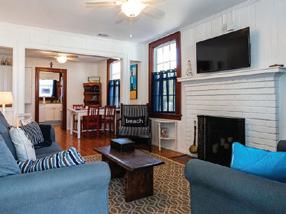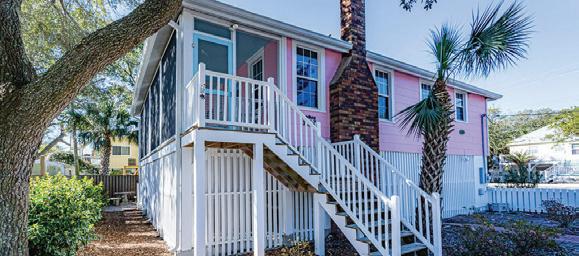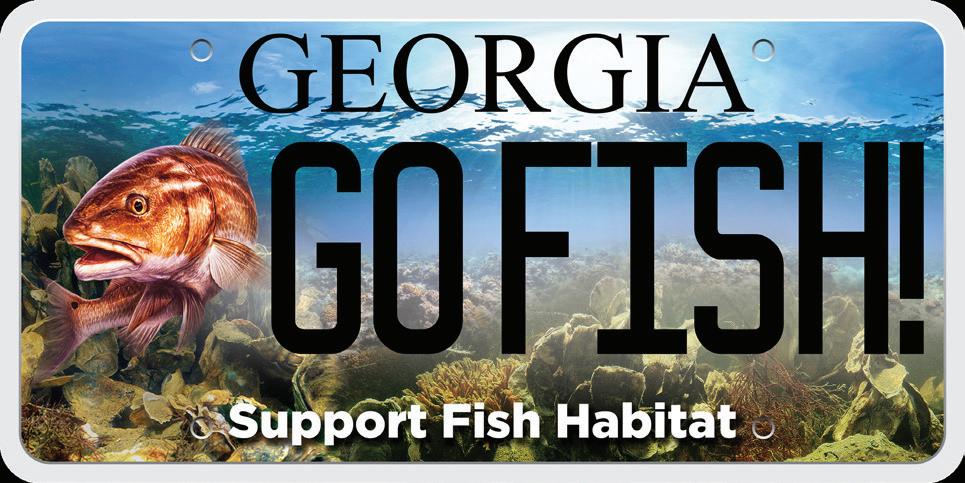Southern T ides
all about the water
August 2023


all about the water
August 2023




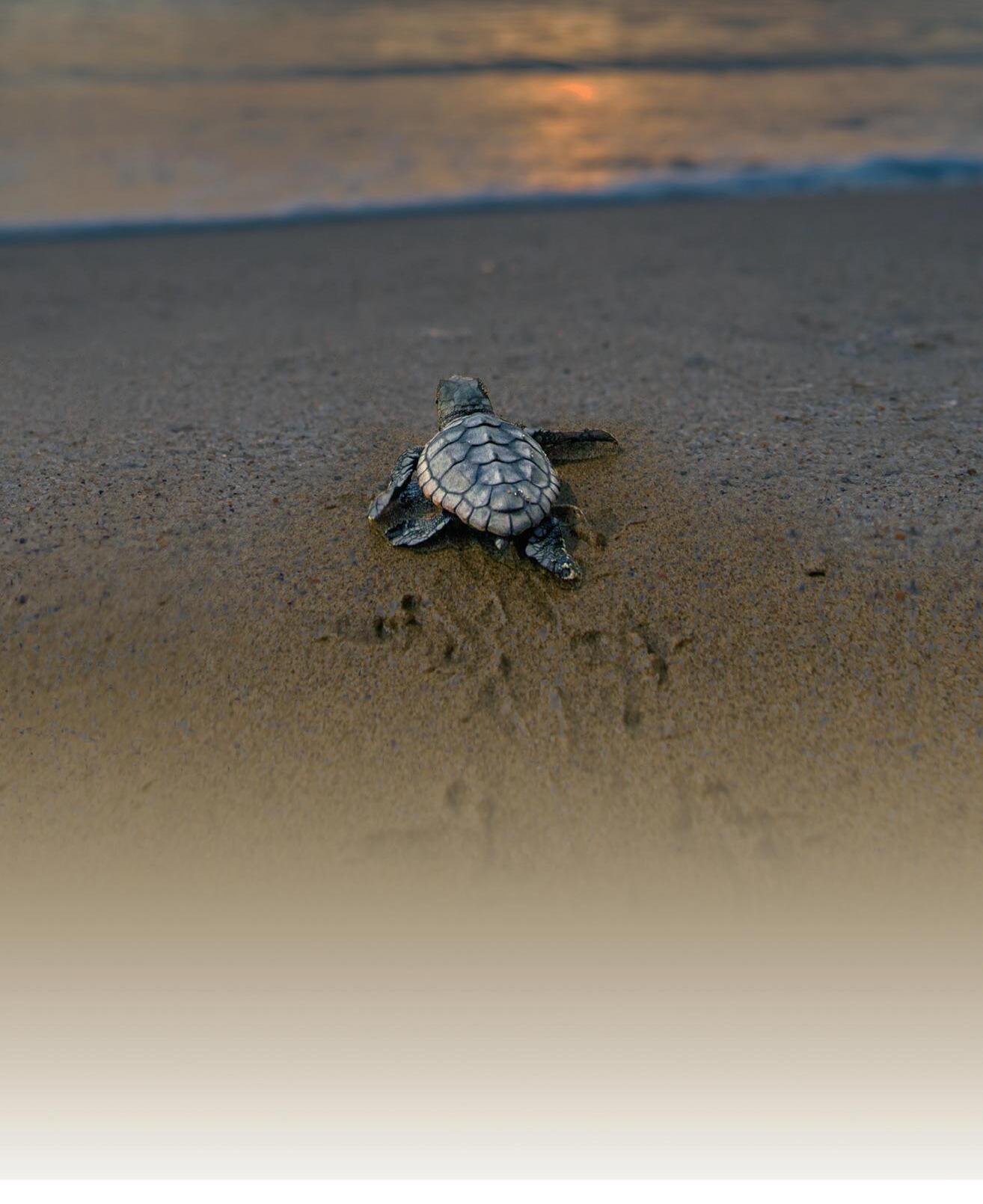



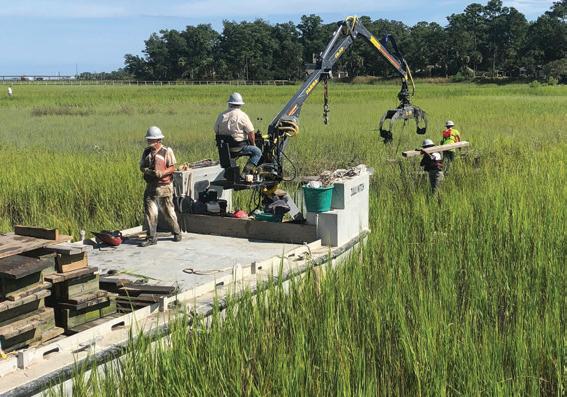
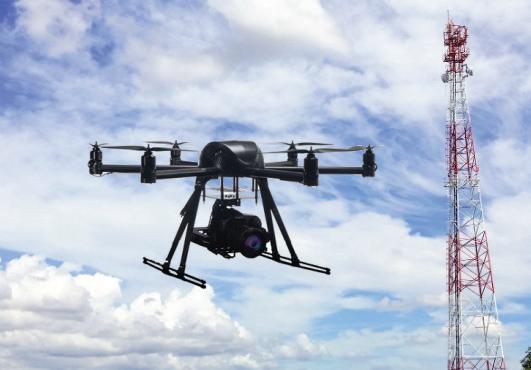
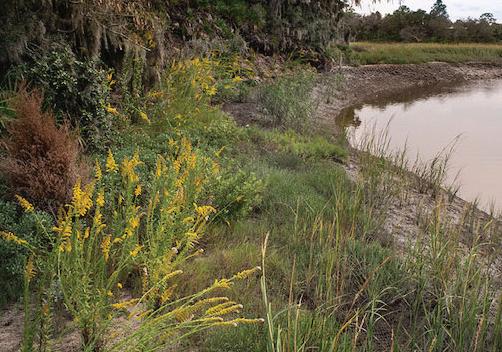

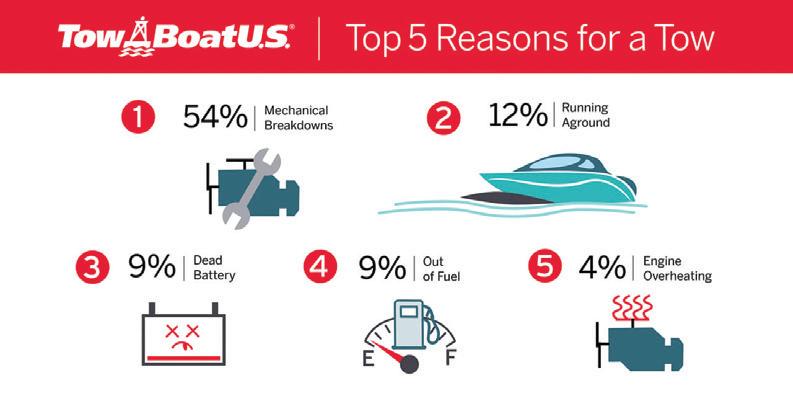
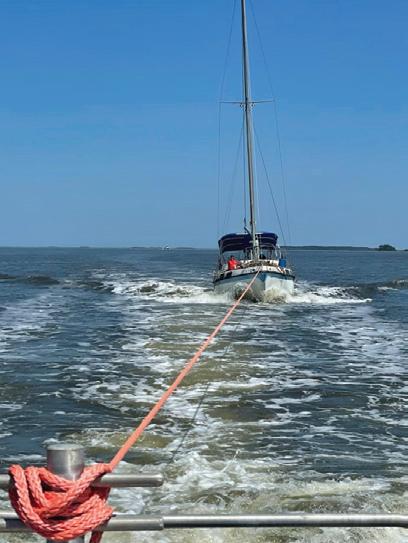

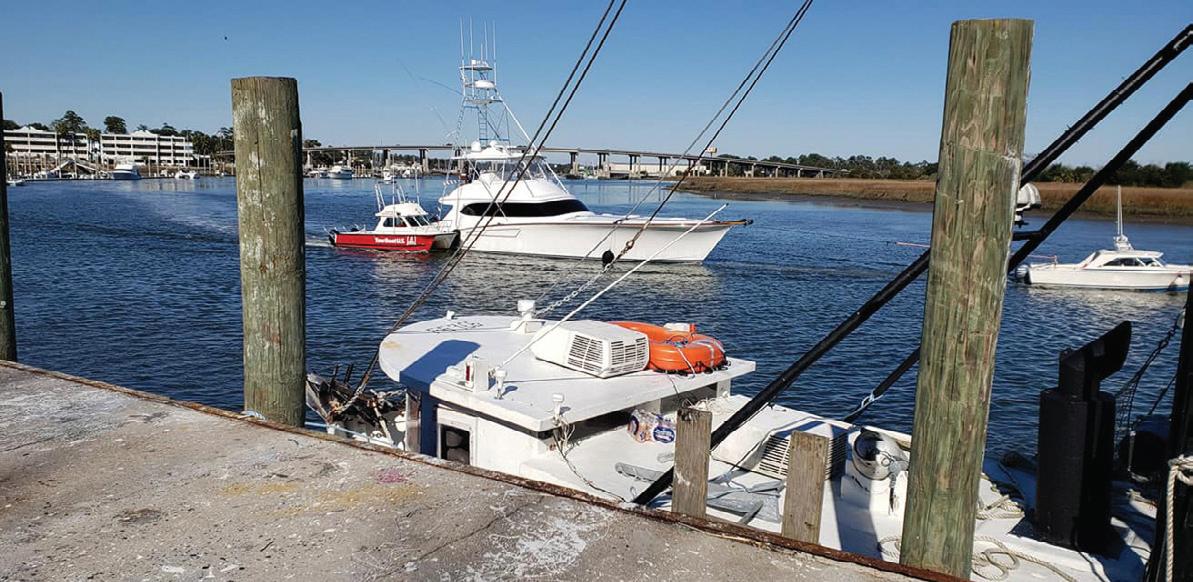

PUBLISHER/EDITOR
Amy Thurman amy@southerntidesmagazine.com
ASSISTANT EDITOR
Neva Parsons neva@southerntidesmagazine.com
CONSULTING NATURALIST
John "Crawfish" Crawford subtropicalnaturalist@gmail.com
THE BITTER END COLUMNIST
Captain J. Gary "Gator" Hill theoriginalcaptaingator@gmail.com
THE RIVERKEEPER REPORT
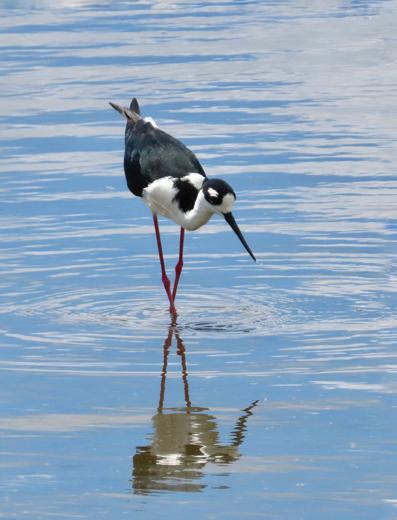
Meaghan Gerard meaghan@ogeecheeriverkeeper.org
TALES FROM A BOATING NERD
Cynthia Lamb cynthia.l.lamb48@gmail.com
Contributors
Nick Riccio, Jr. Wildlife Photographer
Jane Wilkinson-Bunch Southern Lovin' in the Oven Recipes
Laurie Lohne Nature Photographer
Melissa Cummings GADNR Wildlife Resources Division
Mark Dodd GADNR Wildlife Resources Division
Top: Our new columnist, Cynthia Lamb.
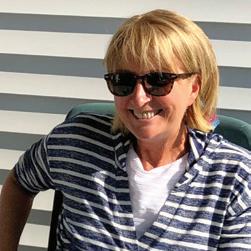
Photo by Jerry Lamb
Center: Great egret chicks
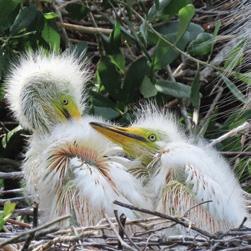
Photo by Laurie Lohne Photograhy
Bottom: One of the first hatchlings of the season..
Photo by Mark Dodd, GADNR
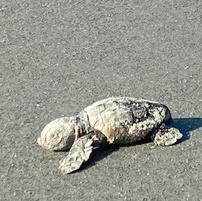
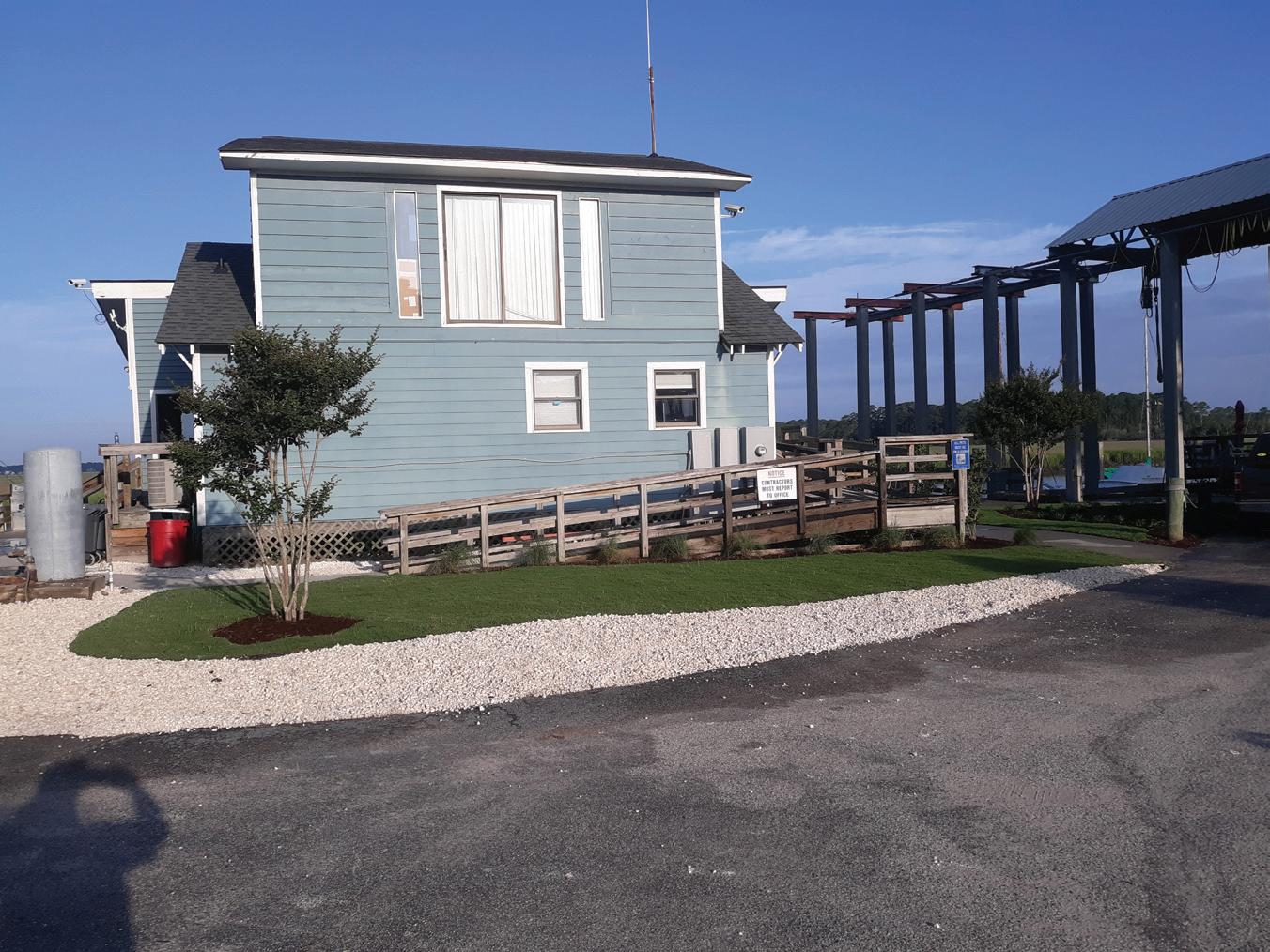

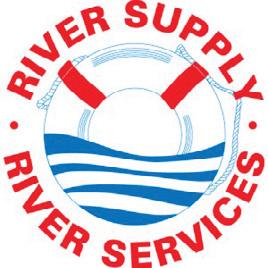
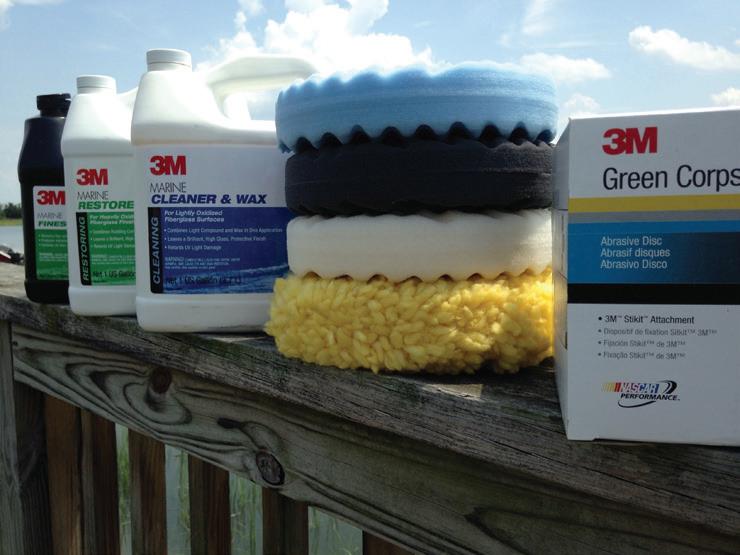
If you take a look at the Table of Contents on page 5, you’ll notice that this is issue 12, of volume 8, which means that next month, Southern Tides will be nine years old. Which also makes this issue number 96, just four more to go until we reach issue 100. It’s hard to believe, but when I look back through all the covers, and through the archive of files, the proof is right there.
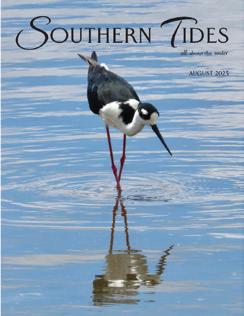
I wanted to give you all a heads-up that issue 100, in December, will be the final issue of Southern Tides Magazine. This decision wasn’t an easy one to make – I’ve been going over options and possibilities since last fall and this is the only practical conclusion.
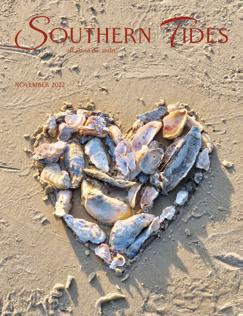
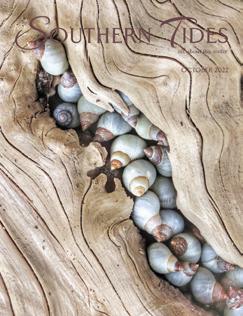
Why? There are a plethora of reasons, some business-related and some personal. From a business standpoint, I’ve been struggling to grow the advertising base that’s needed to support the magazine. Our current advertisers have been carrying the bulk of expenses for several years and I’m grateful to each and every one of them, but that can’t go on indefinitely. In an ideal world, I could bring in more advertisers, branch out a bit beyond the boating industry (maybe truck dealerships since trucks pull boats, maybe skin cancer clinics since that’s a concern for all of us), but that tack hasn’t been successful and realistically, I’m just not a great salesperson.
I’ve considered going to a digital platform entirely, but the response from readers and advertisers alike hasn’t been favorable, and I’m not convinced that many people actually spend time reading fulllength articles online.
Costs have gone up 30% since 2020 and while I’ve bumped ad prices up a bit where possible, it’s just not enough.
In addition, I’ve struggled to find reliable distributors. Cathy Liberatori with East Coast Paddle Boarding has been handling Tybee Island and doing a phenomenal job, but I’ve been relying on friends to help out with the rest of the coast and that’s not an ideal solution.
Things have changed in more intangible ways, too. Prior to 2020, I was in the field at least once a month tagging along with scientists, various organizations,
businesses or others in the community, which provided material for feature articles, but those opportunities are rare these days. Submissions from water-focused organizations have slowed down as well –there just isn’t as much information being disseminated, which makes finding content challenging.
However, we’ve had a great run and you still have this issue to read, plus four more to come!
This issue has quite a bit going on – we have a new regular columnist, Cynthia Lamb, who’ll talk all things boating in her column Tales from a Boating Nerd (page 9).
We have a new advertiser as well. Clay Boykin, who's a dear family friend and a great welder, has opened Boykin Mechanical; see his ad on page 20.
We have a feature about local photographer and author, Laurie Lohne. Laurie has provided us with some amazing cover photos over the past year and her latest book Treasures, Landmarks & Nuances of the Georgia Coast, is absolutely stunning. I bought a copy and you should, too. You can learn about her and see a sampling of her work starting on page 12.
I learned something this month. When Laurie and I started looking at photos, one of the first she sent me was of a blacknecked stilt. Somehow I’ve never heard of these birds that migrate here to nest every year. They’re particularly adorable and an interesting species – check out Did You Know? on page 21 to learn more.
We’re planning more great content for the next four issues, so look for Southern Tides where you regularly pick it up, and feel free to send me any ideas you might have. Thank you for reading!
See you out there!
Amy Thurman Editor in Chiefamy@southerntidesmagazine.com
Cover photos provided so graciously by Laurie Lohne, who is this issue's Featured Artist. From top to bottom: October 2022, November 2022, April 2023, and this month's cover. See more of her photos of coastal Georgia, starting on page 12.
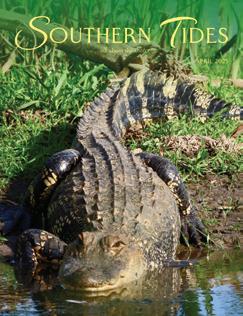
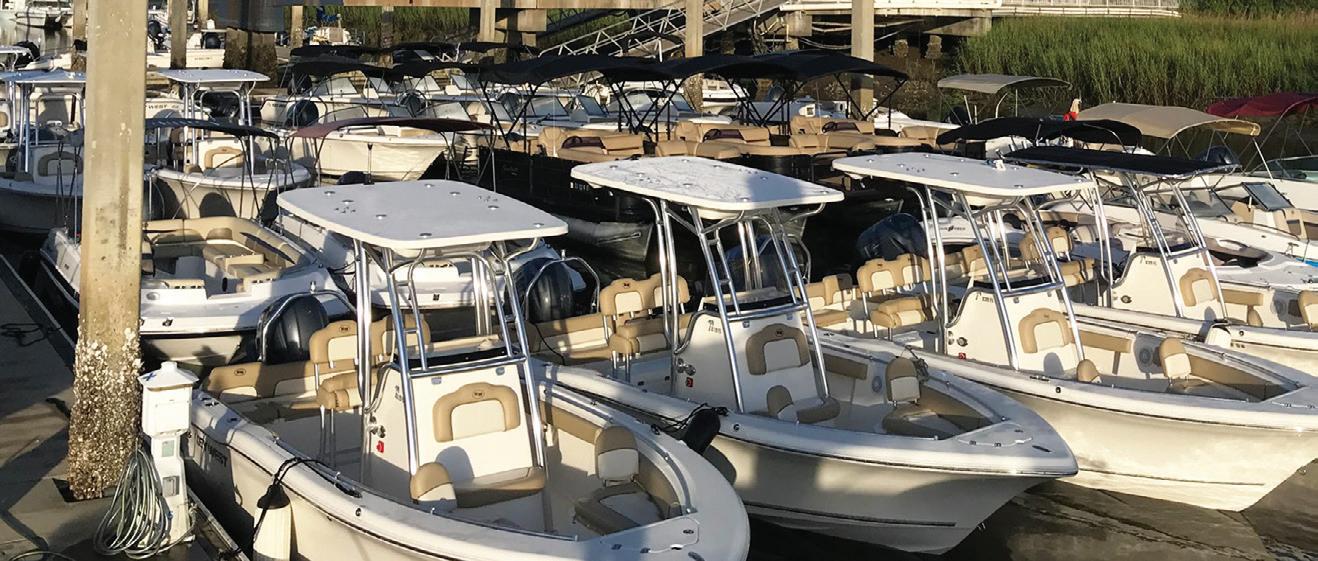


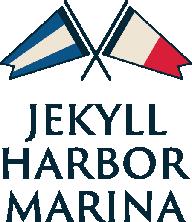
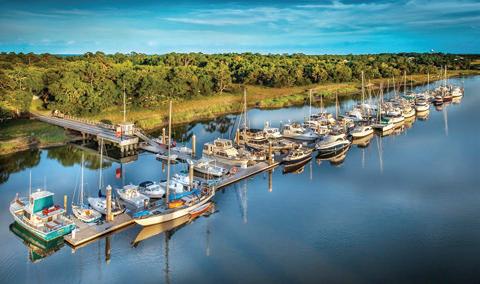

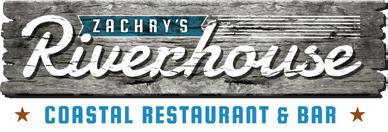
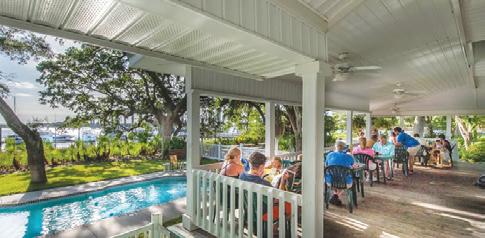

Southern Tides is pleased to welcome Cynthia Lamb as a regular columnist! We hope you'll all enjoy her take on spending time on the water.
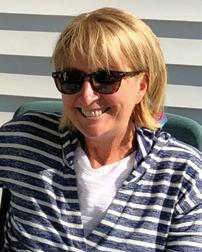

Ilove my boat. There, I’ve said it. My boat makes me happy. It’s worth every penny my husband and I spend on it. Whenever we can get out on the water, we go. I’m excited every time I see a dolphin, alligator, bald eagle, roseate spoonbill, turtle, or really, any critter. I recently spotted a cute little mink swimming like the dickens toward shore in the Hampton River. It was great! Every trip is different. Every trip is fun.
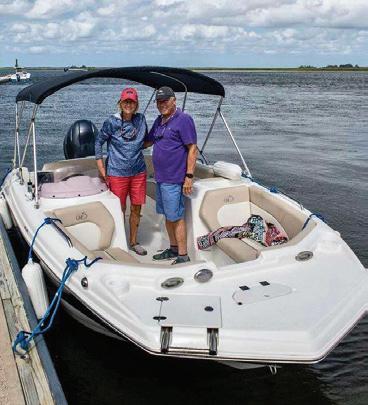
We all seem to recognize instinctively that being by water makes us happier and reduces stress. Did you ever wonder why? In the book Blue Mind: The Surprising Science that Shows How Being Near, In, On, or Under Water Can Make You Happier, Healthier, More Connected, and Better at What You Do, author Wallace J. Nichols presents lots of scientific and anecdotal evidence of water’s beneficial effect on us.
According to Nichols, “the mere sight and sound of water promote wellness by lowering cortisol, increasing serotonin, and inducing relaxation.”
Stuck in unbelievable traffic on Frederica Road the other day with my husband was not a recipe for calm and peace, but our moods did perk up when we heard this great song. We both loved it immediately. It’s called Buy Me a Boat by Chris Janson. Some of you country music fans may know it (it was released in 2015), but for those who haven’t heard it, here are some of the lyrics:
I ain't rich, but I damn sure wanna be Workin' like a dog all day ain't workin' for me I wish I had a rich uncle that'd kick the bucket And I was sittin' on a pile like Warren Buffett I know everybody says money can't buy happiness
But it could buy me a boat
It could buy me a truck to pull it
It could buy me a Yeti 110 iced down with some silver bullets
Yeah, and I know what they say, money can't buy everything
Well, maybe so
But it could buy me a boat
I’ve often wondered why taking the same trip up and down the Hampton River or into Village Creek doesn’t get boring. In Blue Mind, Nichols explains how nature, and water in particular, can be both relaxing and stimulating for the brain. Nichols writes, “In a natural environment, there is a high degree of statistical predictability because it is so much the same from moment to moment. The background is fairly controlled and a little dreamy … which allows part of the brain to relax. Against that background, the brain is continually looking for perturbation, for something that doesn’t fit, something that moves, something that wasn’t there before and that doesn’t match with my representation of the landscape. When the brain sees a perturbation, it creates a sense of surprise and novelty.” For me, looking for splashes, colors, or patterns I didn’t expect (e.g., something moving on the bank), is engaging and exciting. My brain really loves those moments. We’ve been very busy lately with all sorts of commitments, trips, and appointments, so we haven’t had much opportunity to get out on the water; only twice in July – well below average. Not only has my mood been suffering, but so has my tan.
I don’t know if Chris Janson understands the neurological underpinnings of his desire for a boat (or even cares), but he definitely knows he needs to be out on the water, just like all of us who love to boat, kayak, or paddleboard.
Jerry and I have gotten through with most of our commitments and finally gotten back out on the water. Life is good again. I love my boat.
Cynthia.L.Lamb48@gmail.com
Cynthia is a resident of Saint Simons Island where she lives with her husband Jerry. She spends as much time on the water as she can fit into her schedule and is a self-proclaimed Boating Nerd. You can reach her at:





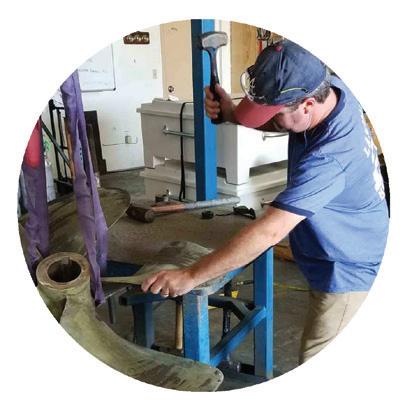
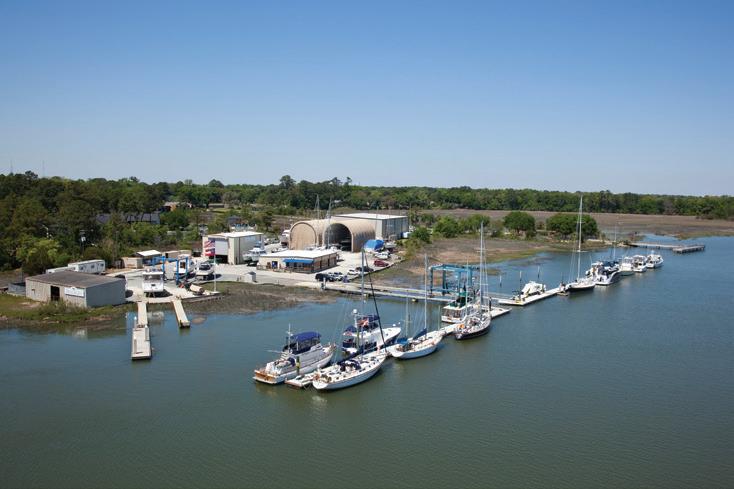

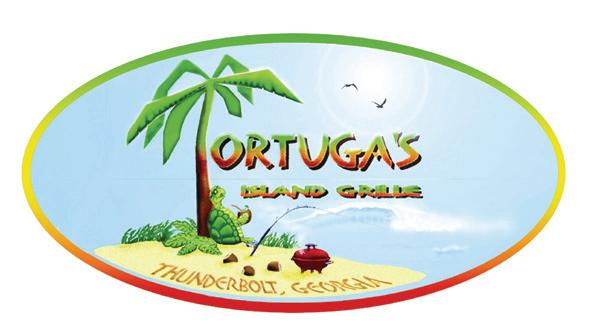
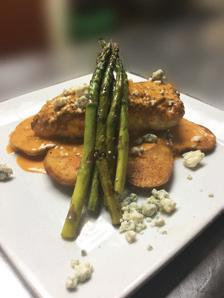
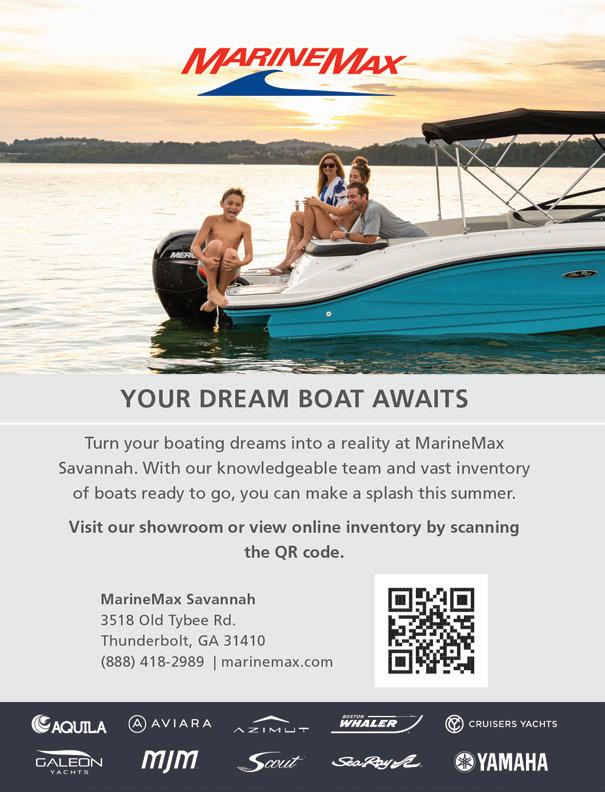
1 pound shrimp, peeled and deveined
¼ tsp baking soda
Kosher salt
½ pound angel hair pasta (my preference)
3 tbsp extra-virgin olive oil

FOR PARMESAN BREADING:
½ cup panko bread crumbs
4 tbsp shredded parmesan, plus more for serving
¼ tsp freshly ground black pepper

¼ tsp cayenne pepper
FOR CREAM SAUCE:
1 cup dry white wine
5 cloves garlic, peeled
2 cups heavy cream
1/2 red onion, diced
1 plum tomato, diced
1 tsp fresh basil, chopped, plus more for garnish
Kosher salt
Freshly ground black pepper
In a medium bowl, toss shrimp with baking soda and ¼ teaspoon salt. Refrigerate 20 minutes.
Meanwhile, in a large pot of boiling salted water, cook pasta until al dente according to package directions, then drain.
Make the parmesan breading: Whisk together all breading ingredients in a large shallow bowl. Add shrimp and toss to coat, pressing to adhere breading.
Heat oil in a large, high-sided skillet over medium heat. Using tongs, add shrimp to skillet. Cook until they curl and are pink and white, 2 to 3 minutes per side. Transfer to a paper towel–lined plate. Wipe out any remaining crumbs in skillet.
Make the cream sauce: Return skillet to medium-high heat and add wine. Bring to a boil, stirring occasionally. Reduce heat to medium-low and add garlic. Stir occasionally, letting sauce reduce, 8 to 10 minutes.
Add cream, stir, and bring to a simmer.
Add onions and let simmer 5 to 7 minutes.
Add tomato and basil and season with salt and pepper to taste. Divide cooked pasta between plates and top with cream sauce and shrimp. Garnish with Parmesan and basil.
Contributed by Jane Wilkinson-Bunch Southern Lovin' in the Oven Recipes & More Daily
Classic shrimp scampi is one of our favorite Italian-American dishes. What could possibly beat fresh shrimp spiked with garlic and served over pasta in a parmesan cream sauce? Nothing! Hope this becomes one of your favorites!
Don't forget to support your local seafood markets or catch it yourself!
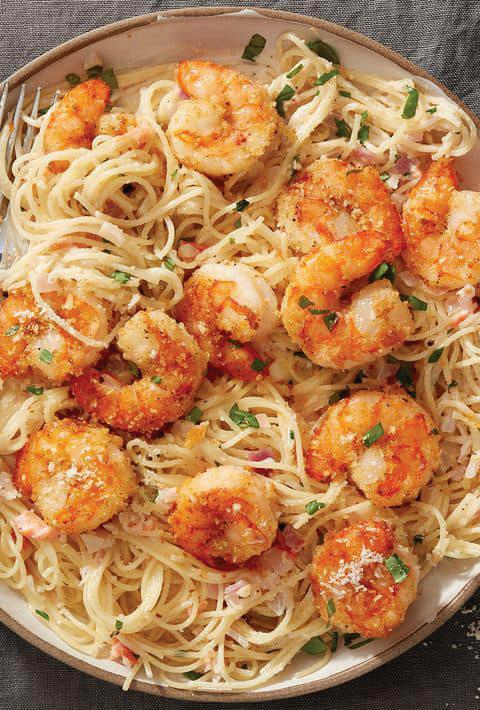
Southern Tides is thrilled to feature nature photographer and author, Laurie Lohne, this month. Enjoy - we certainly do!
By Neva Parsons Assistant Editor Photos by Laurie LohneOnce upon a time, there was a little girl named Laurie who lived with her parents, the Bonnifield's, in an enchanted land inhabited by wild creatures, including many varieties of beautiful birds. Laurie’s mother, Rosemary, taught her how to care for baby birds, and how to nurse sick or injured ones so they could fly away. Laurie’s father, William, built a nest box for owls and set it high off the ground so owls could nest in safety. Her parents’ lessons in love and respect for all animals, and for their homes, instilled in her a need to learn about and safeguard wild things and their habitats.
If you think that sounds like the beginning of a fairy tale, you’d be wrong. It’s the beginning of the true story of Laurie Lohne, and her journey to another enchanted land and a new career as an accomplished photographer and author.
Like many of us, Laurie’s early adult life was a hectic one filled with work and family. She held down two jobs – she was an art director by day, and freelance book designer by night. Between her work, a husband, and three children, she was always on the go. Her love of spending time in nature, instilled in childhood, had to take a back seat to her demanding – but thoroughly rewarding – lifestyle.
When Laurie transitioned from the working world to retirement, she moved to Coastal Georgia and was immediately smitten with its natural beauty, and by the many bird and animal species which call it home. Laurie headed out on long walks, camera at the ready, through maritime forests and marshes, and along lakeshores and beaches. Hoping to inspire others to appreciate and preserve the fragile coastal environment in which she wandered, she shared what she’d captured with her lens on social media under Laurie Lohne Photography.
Laurie was keenly interested in the birds she encountered on her walks and decided to buy a simple birding book to help her
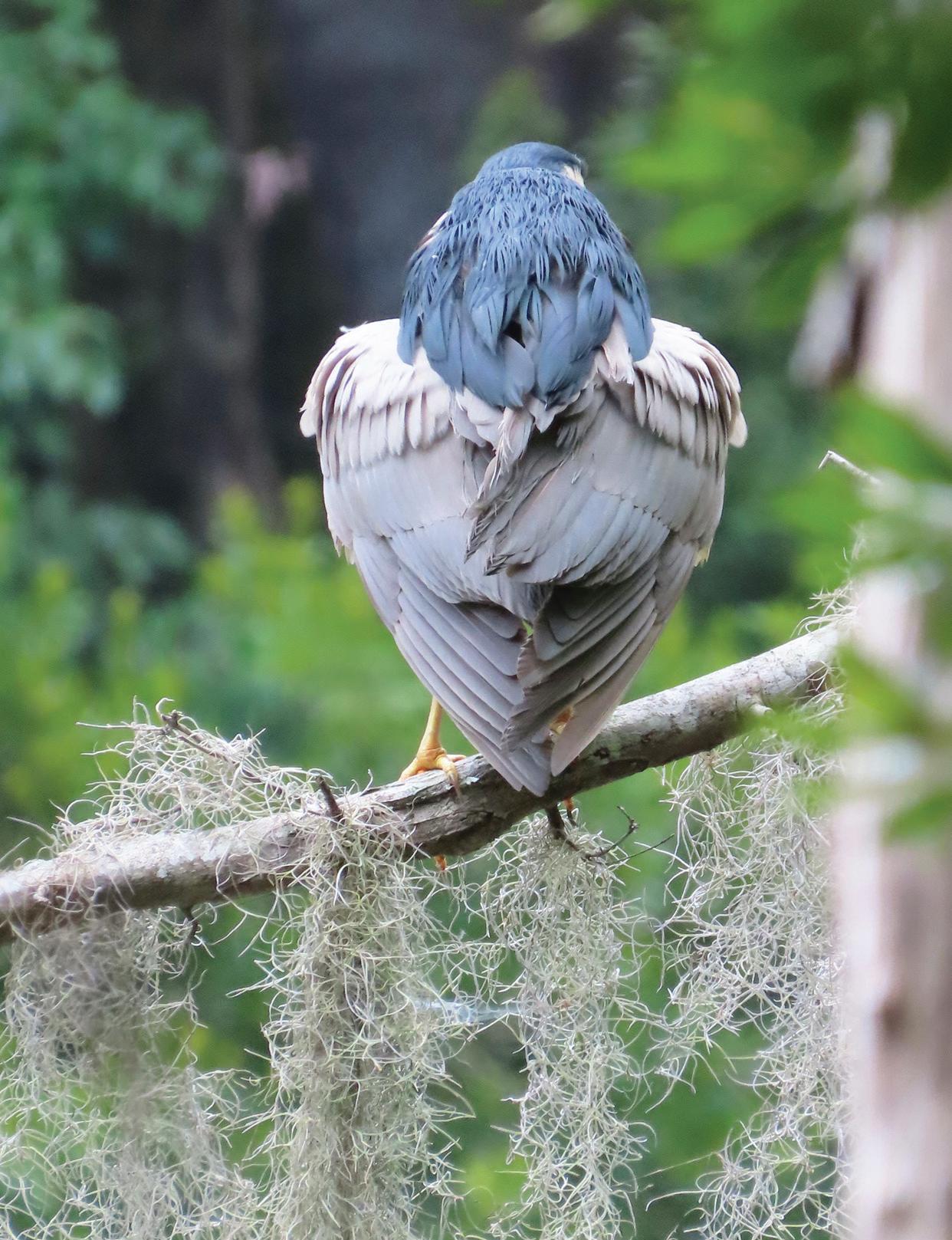
Opposite page: A black-crowned heron caught unawares.
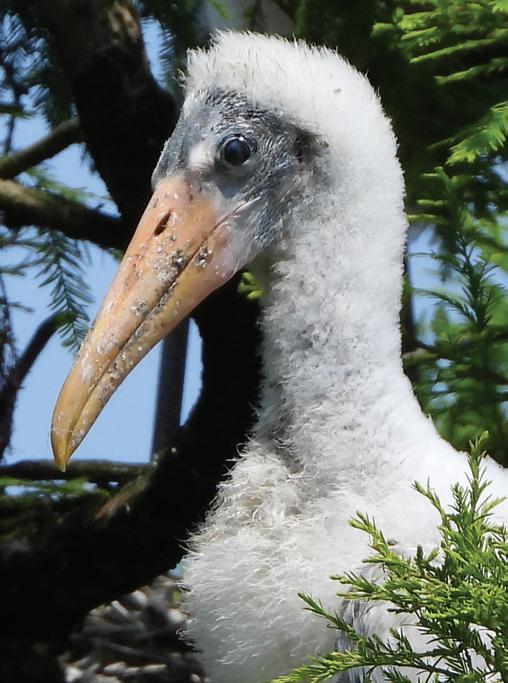
Left: Juvenile white ibis perched on a limb in the marsh.
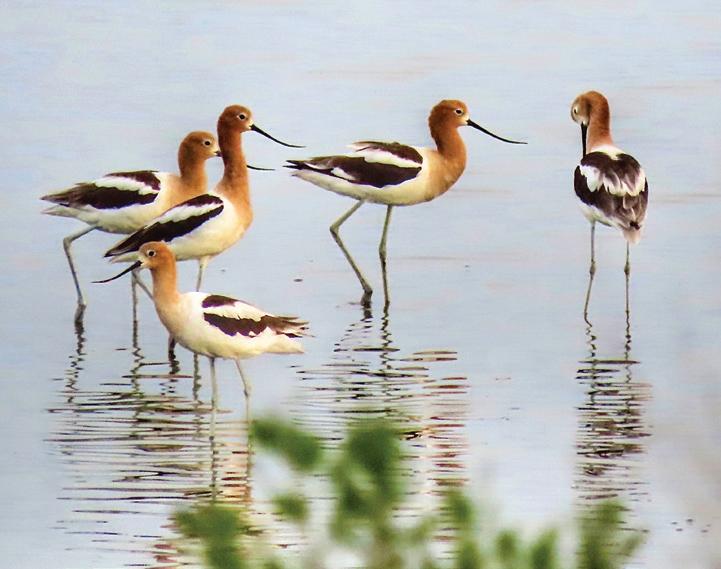
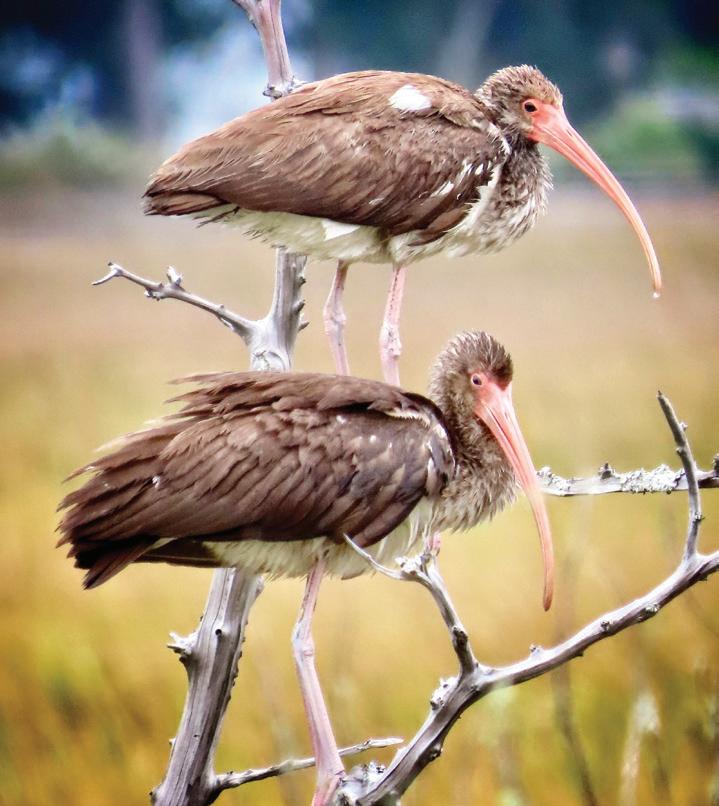
Below: A woodstorck chick waiting patiently for his next meal. It doesn't get much cuter!
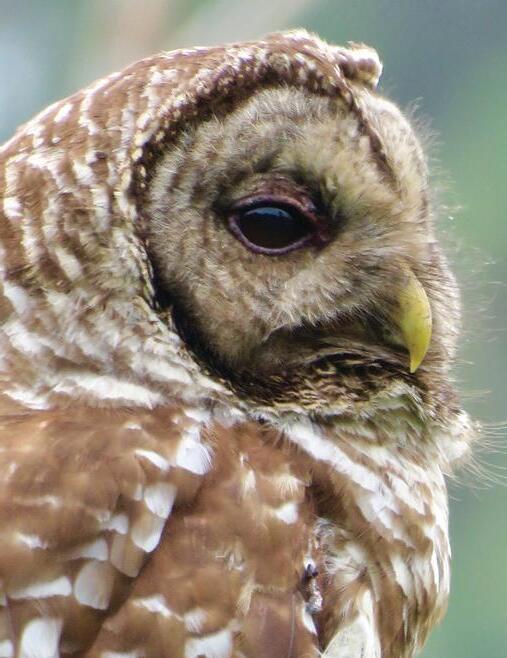 Above: American avocets wearing their breeding plumage, wading and grooming.
Right: A barred owl, perusing its territory.
Above: American avocets wearing their breeding plumage, wading and grooming.
Right: A barred owl, perusing its territory.
learn more, but this proved frustrating. The only books she was able to find were overly technical and overwhelming for newbies. As it’s often said, if you want something done right, do it yourself. Which is precisely what Laurie did, bringing her book designing expertise together with her love of nature photography, which resulted in her first book, Birds of a Different Feather. And there would be more books to follow.
Her second book, Feathered Friends is a whimsical children’s coloring book featuring the beautiful birds found throughout Coastal Georgia. The coloring illustrations were derived from Laurie's original photography and captions were written by Gayle Ragland Stogner.
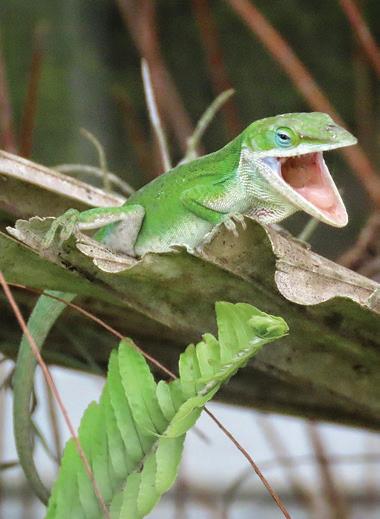
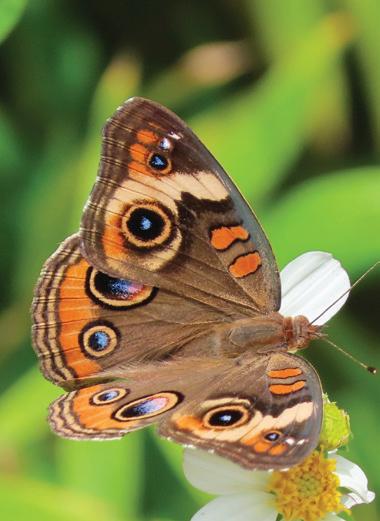
Laurie's newest release is Treasures, Landmarks & Nuances of Coastal Georgia. This book provides virtual guided tours of Jekyll Island, St. Simons Island, Historic Brunswick, Cumberland Island, Sapelo Island, and the Okefenokee Swamp. This book is especially exciting for Laurie because it’s her first hardcover book.
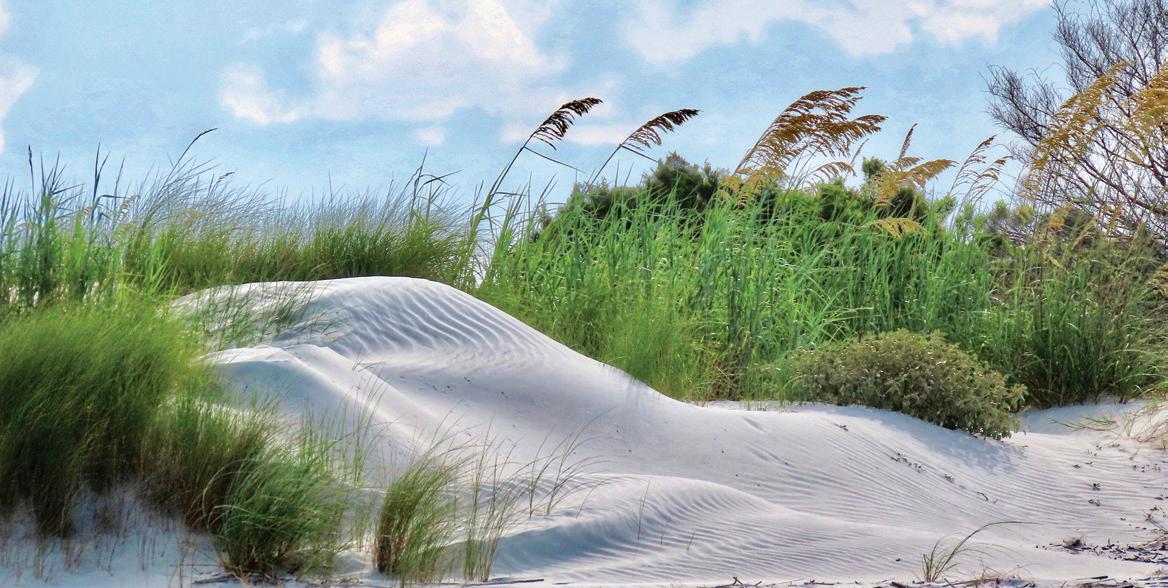
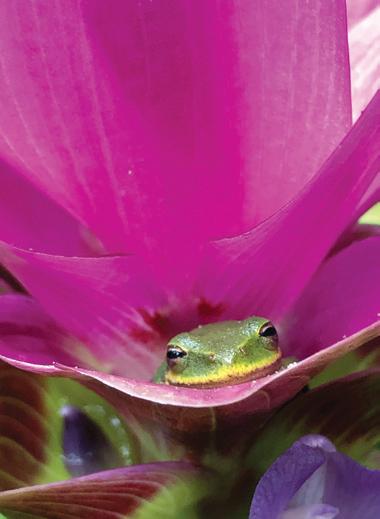
Laurie’s photography isn’t confined to her books. Her photos have appeared on Action News Jax, and have graced the front covers of Elegant Island Magazine, Southern Tides Magazine and The Island Directory. Exhibitions of her art include "The Celebration of Birds" at Horton Gallery, and "The Sidney Lanier Bridge" at Creative Frameworks Gallery. Work which can be purchased is displayed at the Goodyear Cottage Gallery, located in Jekyll Island's historic district.
Laurie’s Etsy shop, Coastal Georgia Canvas, offers custom canvas prints featuring her photography of the uniquely beautiful Coastal Georgia, as well as copies of her books. You can visit the shop at www.Etsy.com/shop/CoastalGeorgiaCanvas, as well as share her enchanting vision of the natural world she so obviously loves and respects at facebook.com/laurielohnephoto.
Opposite page top, L-R: Just a happy little tree frog hanging out in a flower!
A buckeye butterfly doing a bit of pollinating.
A cute little green anole with dreams of being Godzilla.
Opposite page bottom: A wind-sculpted dune on Glory Beach, Jekyll Island.
This page above left: A grey wolf at Oatland Island Wildlife Preserve, Savannah.
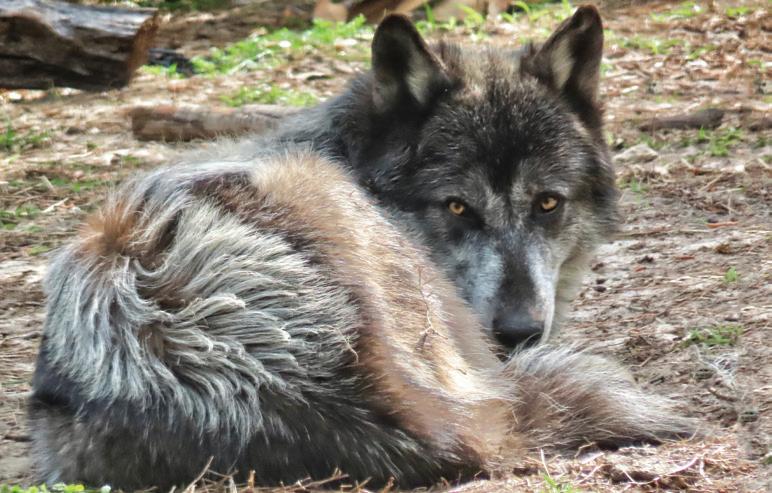
Top right: An Indian blanket wildflower. The name comes from a Native American legend. When a brave went to war, his wife would weave a blanket with threads of red and orange, symbolizing her prayer keep her husband safe.
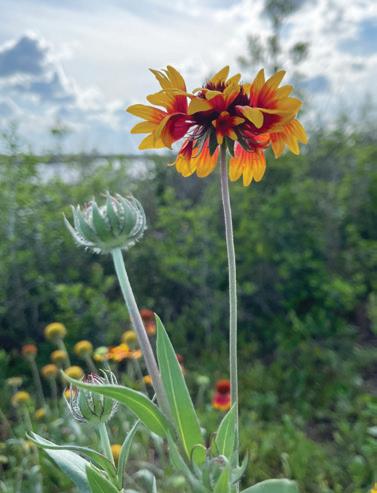
Right: Doe and fawn on Jekyll Island.
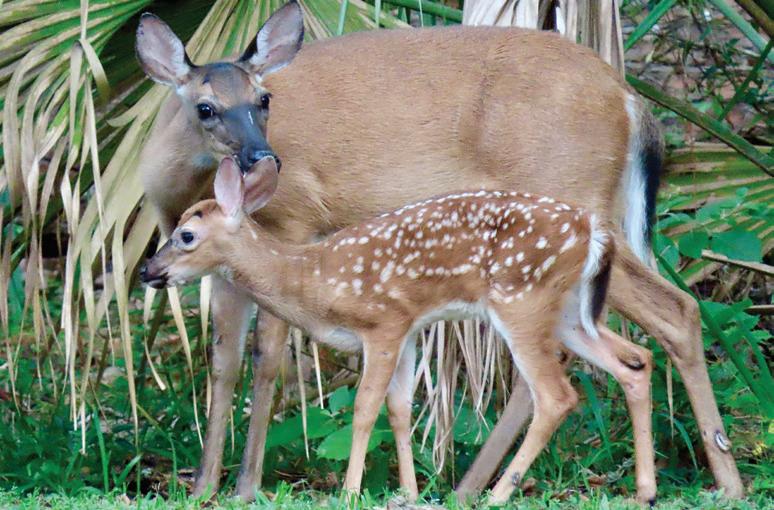
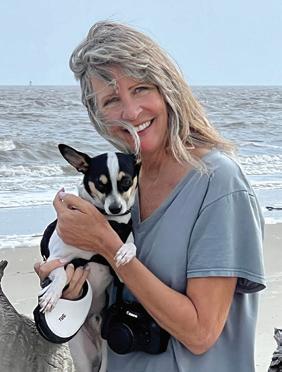
Laurie's books, L-R: Her newest release,
of Coastal Georgia
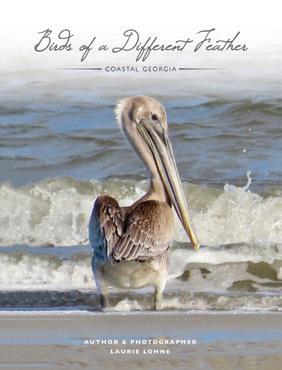
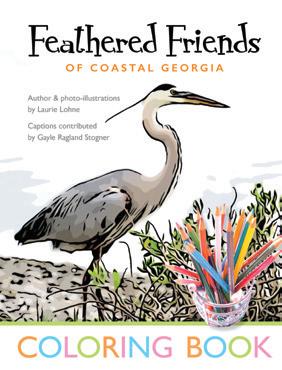
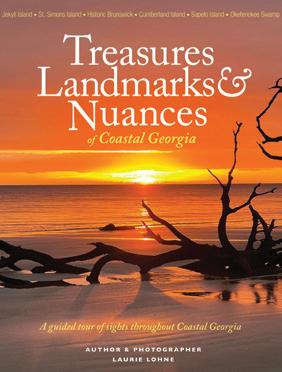 Treasures, Landmarks & Nuances of Coastal Georgia, Birds of a Different Feather, and her coloring book, Feathered Friends
Above right: Laurie with her pup, JJ, on Driftwood Beach.
Treasures, Landmarks & Nuances of Coastal Georgia, Birds of a Different Feather, and her coloring book, Feathered Friends
Above right: Laurie with her pup, JJ, on Driftwood Beach.
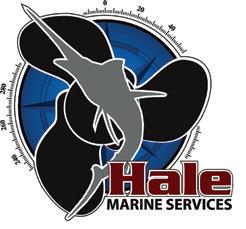

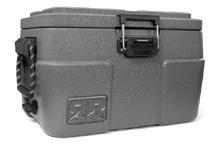
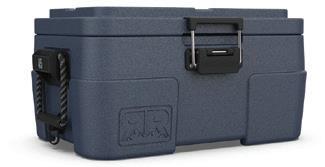
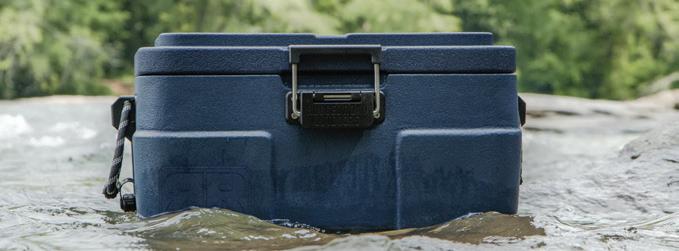

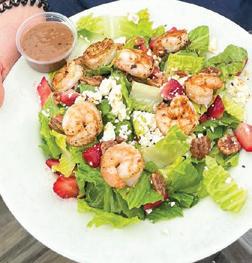

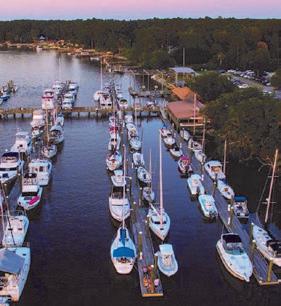





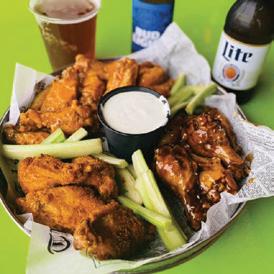
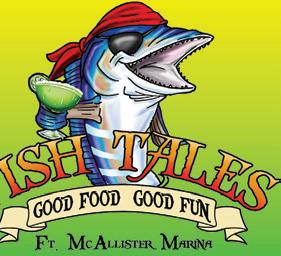
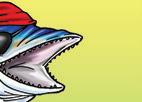


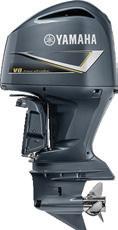

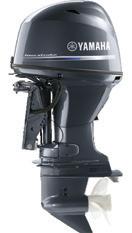
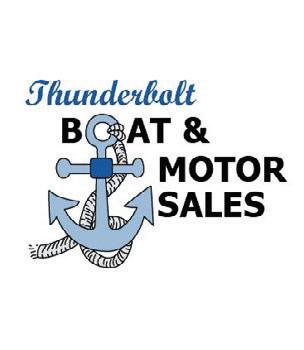
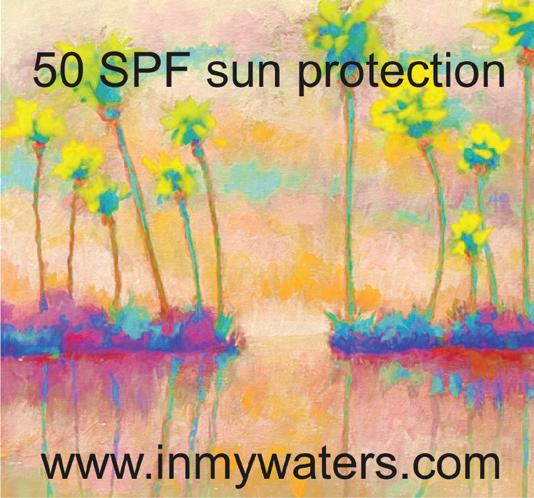



Bryan County is finalizing its comprehensive plan, Blueprint Bryan 2045. There are a number of items ORK supports and is encouraging residents to attend meetings and contact their county commissioners. ORK is underlining the need to expand the conservation areas, ensure regional water and wastewater service access, and preserve Bryan County’s rural character. Meeting dates and commissioner contact information: bryancountyga.gov
www.ogeecheeriverkeeper.org/
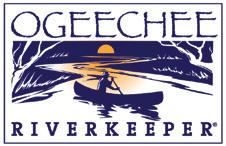
Altamaha Riverkeeper is mobilizing to get more done to solve the “Brunswick East River Mystery Sheen.” Four years is entirely too long for petroleum pollution to remain an unsolved mystery. This is more than a water quality issue in a waterway that suffers from a long history of industrial pollution; Brunswick port workers and residents are suffering from perpetual exposure to benzene (a known human carcinogen) fumes that cause difficulty breathing, headaches, and nausea. To report threats to water quality in the Altamaha watershed or to become a volunteer water quality monitor, contact Maggie Van Cantfort at maggie@ altamahariverkeeper.org or 912-223-6073.
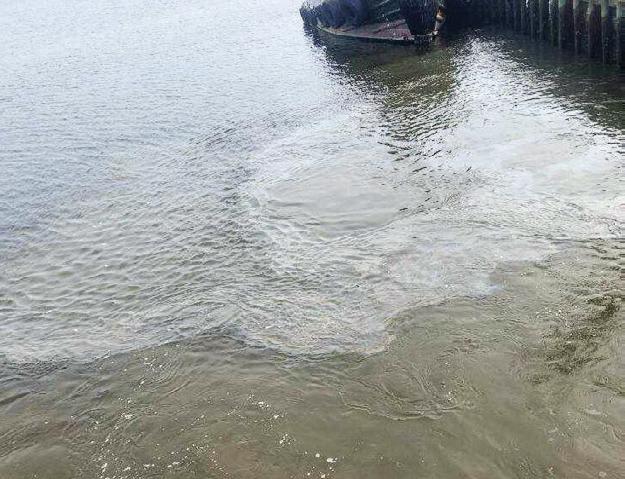
 Compiled by Meaghan Gerard Communications & Administrative Director Ogeechee Riverkeeper meaghan@ogeecheeriverkeeper.org
Compiled by Meaghan Gerard Communications & Administrative Director Ogeechee Riverkeeper meaghan@ogeecheeriverkeeper.org

Join St. Marys Riverkeeper on August 19 to remove unwanted litter from waterways and tributaries. Help clean up Stokes Road in Charlton County which has become a dumping ground for tires and other debris. This will be a HOT day with the possibility of bugs. Please dress appropriately and be sure to bring extra water.
www.stmarysriverkeeper.org/event/cleanup-on-stokes-road/
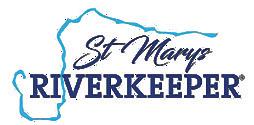
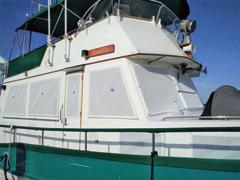

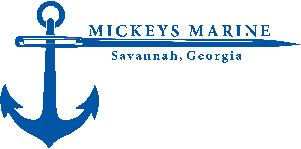
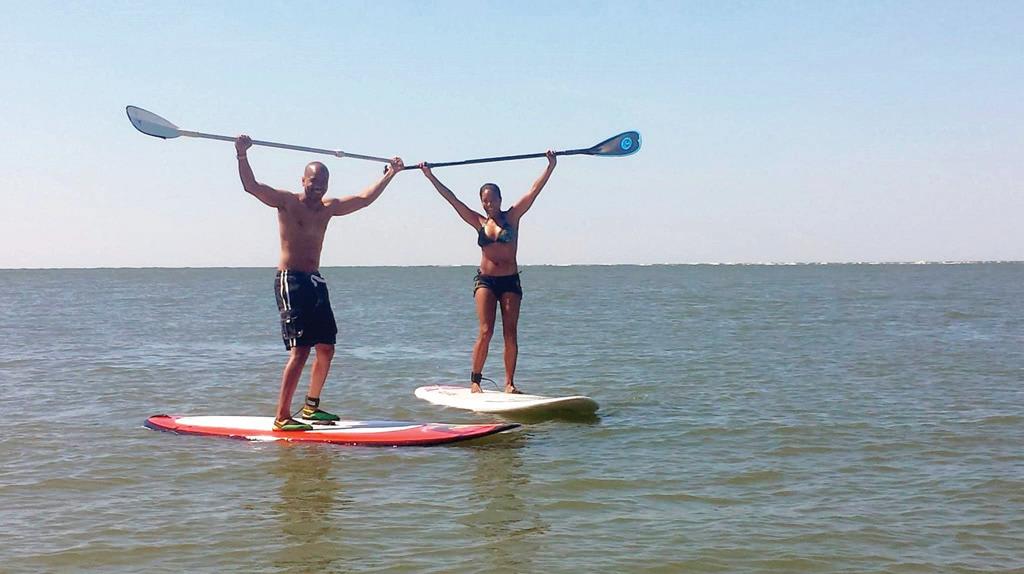
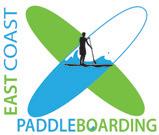
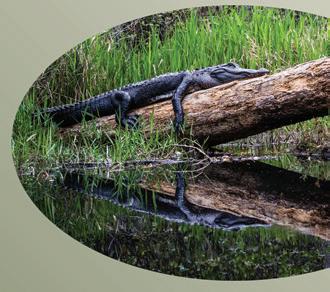

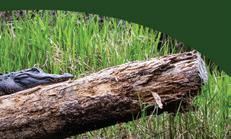
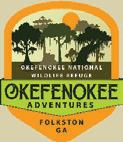
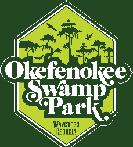

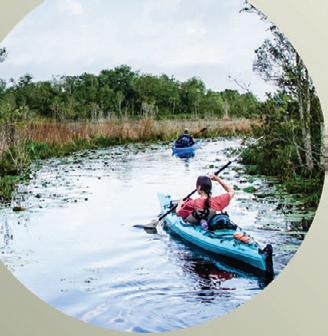
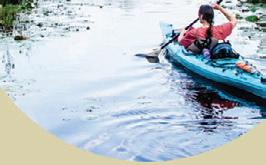
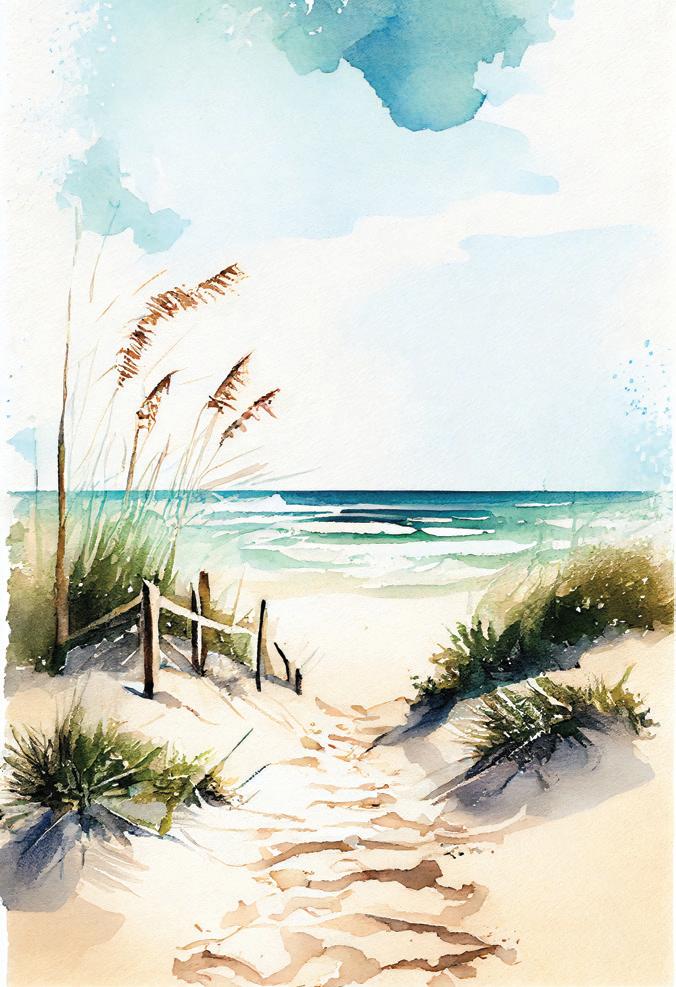
Sea turtles can be present in our waters year round and hatchlings are starting to emerge and make their way in our coastal waters. In addition, manatees are here until water temps begin to drop, and as we all know, dolphins are always around.
Whether fishing or just tooling around on your boat, you could easily have an encounter with one of these animals. What do you do if this happens? Here are some tips, provided by NOAA.
If you catch a sea turtle or marine mammal, call your local stranding response network immediately (800-2-SAVE-ME, or 800-272-8363) or contact the U.S. Coast Guard on VHF Channel 16.
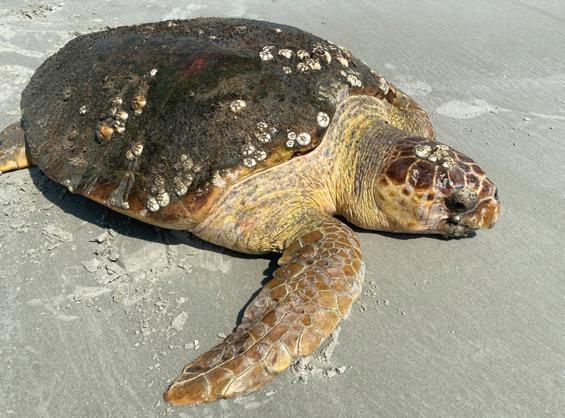
Here’s some other guidance to reduce accidental captures and harm to animals. Remember, safety first, use your judgment, and don’t put yourself in danger!
• Never abandon fishing gear. Hooks, lines, or nets left in the water can entangle and kill sea turtles and marine mammals.
• Use barbless circle hooks and knot-free buoy lines to reduce injuries.
• Inspect gear often to avoid unwanted line breaks.
• Recycle fishing line and stash your trash.
• Change fishing location if sea turtles or marine mammals show interest in your bait or catch.
• Don’t cast your line if a sea turtle or marine mammal is in the area.
• Don’t discard bait or cleaned fish remains into the water, as sea turtles and marine mammals may associate the area with food.
• Never feed or attempt to feed sea turtles or marine mammals – it’s harmful and illegal!
• Release catch quietly away from marine mammals and according to state and federal fishing regulations.
• Call your local stranding network immediately.
• Keep hands away from the turtle’s mouth and flippers.
• Use a net or lift by the shell to bring the turtle on the pier or land. Do NOT lift by the hook or pull on the line. If the turtle is too large to net or lift, try to walk it to the beach.
• When you have control of the sea turtle, use blunt scissors or knife to cut the line. Leave at least 2 ft. of line to allow for dehooking by trained responders.
• Leave the hook in place as removing it could cause more harm.
• Keep the turtle out of direct sunlight, and cover the shell with a damp towel.
• If you cannot reach the response team and are unable to bring the turtle to shore, cut the line as short as possible before releasing the turtle.
Vessel strikes can cause injuries to marine mammals and sea turtles. Injuries may be caused by propellers and blunt force trauma from the vessel’s hull. To avoid injury:
• Watch for sea turtles and marine mammals in the water. Give them at least 50yds of space, 100yds or more for whales. Use our viewing tips for proper distances, if you see them closer put your engine in neutral to avoid injury.
• Do not cross ahead of, or through, a group of marine mammals. Slow down and cross behind them.
• Watch for schools of small fish or jellyfish, sea turtles and marine mammals could be nearby.
• Wear polarized sunglasses to help you better see animals in the water.
• Retrieve your mooring system (anchor and ball) before returning to port.
• Do not remove the fish from the water.
• Cut the line as close to the hook as possible.
• Release the fish as fast as possible to reduce stress on the animal.
A female sea turtle spotted on Blackbeard Island in July. Photo by Mark Dodd, GADNR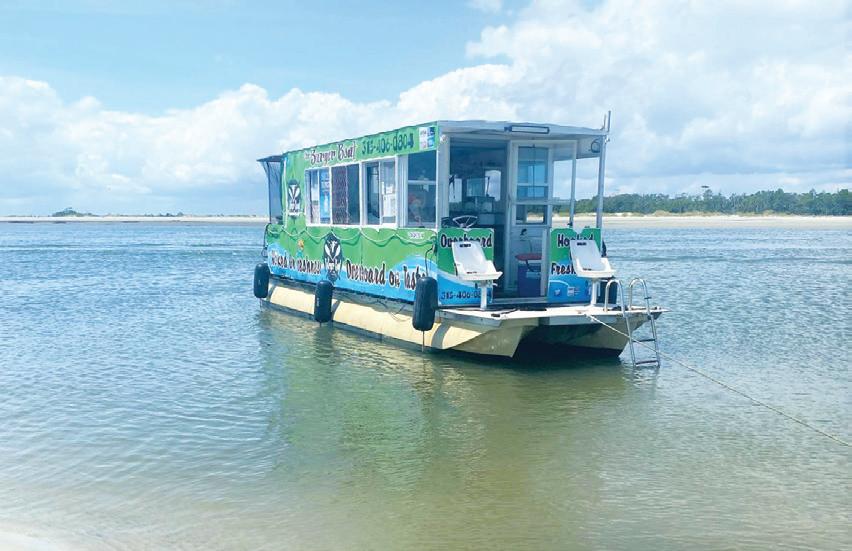
Ablue catfish tagging project on the Satilla River is underway and Georgia DNR Wildlife Resources Division (WRD) researchers need your help! Using this study, fisheries managers hope to learn more about this non-native species, discovered in the waterway a few years ago, to better assess its
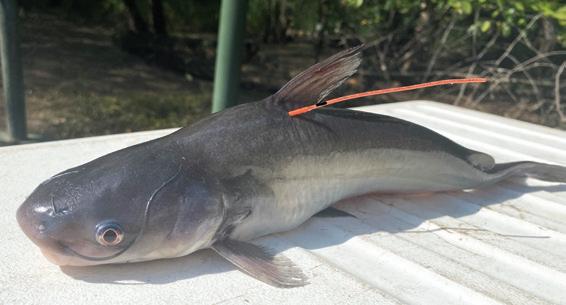
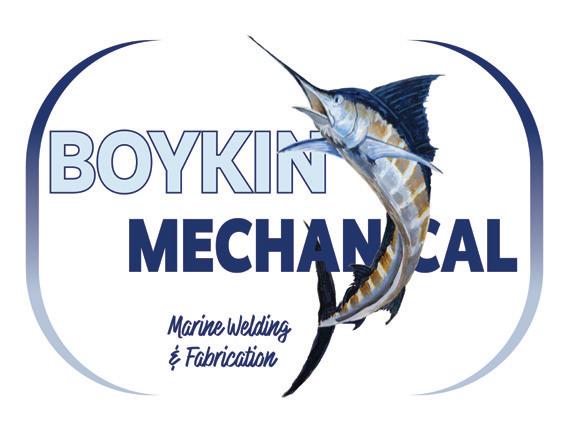
“As a large non-native species in the Satilla River, blue catfish have the potential to negatively impact many of the existing native species in the river, including the prized redbreast sunfish. These tagging efforts will provide fishery managers with important data to better understand movement of the fish in the river and yield some information on fishing mortality for the species,” said Jim Page, WRD Senior Fisheries Biologist. “In exchange for reporting tag information, anglers will be rewarded, so get out there and fish so you can have a chance to get some free swag!”
How do you know if you caught a tagged catfish? There will be an orange dart tag affixed to the fish. This tag has a unique number and a mailing address to return the tag.
How do you report a tagged catfish catch? First, make sure to keep the fish and remove the tag. Tags may be mailed (address listed on the tag) or reported via phone at (912) 2856485. You will need to provide the following information, whether mailing the tag or reporting by phone: total length in inches, weight in pounds, your contact info (name, address, phone number), and information on the catch (e.g., GPS coordinates; nearby landmarks).
Reap rewards for reported or returned tags! Anglers that successfully report tag information will receive a custom hat and information about the tagged fish.
Want to know more about non-native aquatic species found in the Satilla River? Visit GeorgiaWildlife.com/ans. For more information on the Satilla blue catfish tagging study, call the Georgia DNR Wildlife Resources Division Fisheries Management Office in Waycross at (912) 285-6485.
Black-necked stilts have the longest legs of any bird in proportion to their body-size, second only to flamingos. This allows them to feed in deeper water than most birds their size.
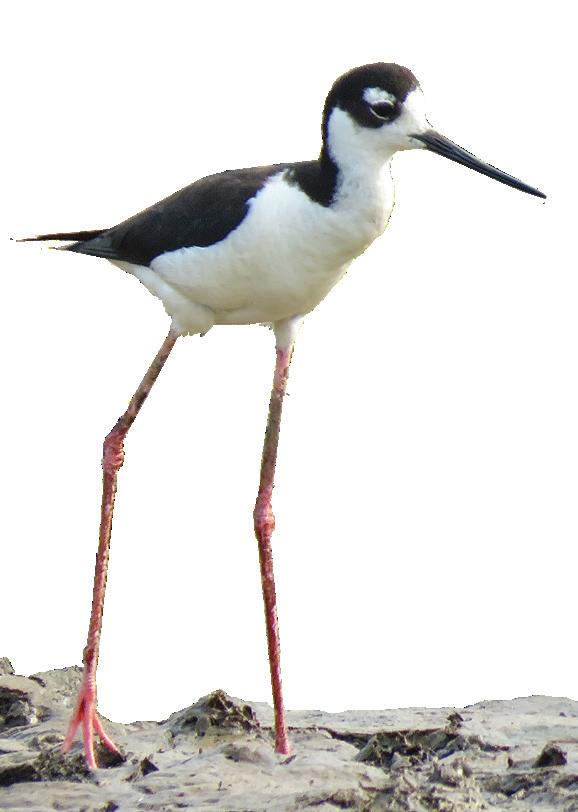
◆ Stilt nest are constructed near water and can be shallow scrapes in the soil, mounded, or on clumps of vegetation and may be lined with bits of shell or other small detritus.
◆ Eggs incubate for 21-25 days and both parents tend the nest. On hot days, the adults may take a dip in the water and use their wet breast feathers to cool the eggs.
◆ Young leave the nest immediately after hatching and begin feeding themselves, but are tended by both parents for several months.
◆ Stilts are highly protective of their nests and young. If a predator approaches, they will fly a short distance from the nest or chicks and create a distraction.
◆ These small delicatelooking birds are 13 to 17 inches tall and have 27- to 28inch wingspans.
◆ They are visual hunters, picking food off the surface or ducking their beaks or heads below the surface for food, and occasionally snatching food from the air.
◆ When viewed in flight, a prominent white V-shape is visible on their backs.
Black-necked stilts only visit Georgia during their nesting season, and it's rare to spot them. They are most ofen spotted near water, on barrier islands and other unpopulated areas.
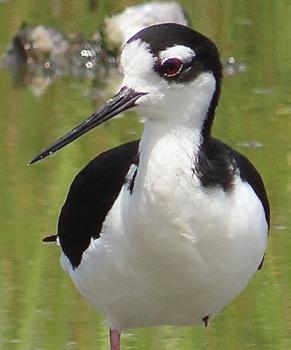
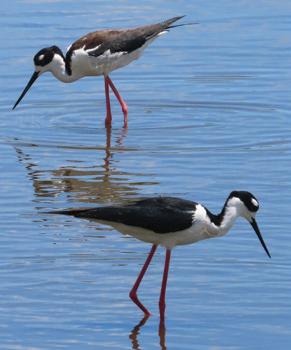
In addition to long legs, black feathers on their heads, necks and wings, and a long bill make this lovely bird very distinctive.
Females, like the top bird in this photo, may have brown feathers on their backs.
number normally laid by stilts, but they can lay 3 to 5.
Compiled by Amy Thurman and John "Crawfish" Crawford Photos by Laurie Lohne Photgraphy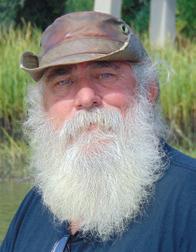
"Put me in coach, I’m ready to play!”
I had to step back a bit last month, due to a hectic charter schedule and I have to say, right now I’m glad to start seeing an end in sight to another busy summer season. Any-who, let’s pick up where we left off before my brief hiatus last month. The topic, if I remember correctly, was dealing with charter boats and setting up charter businesses. The next business I want to discuss is what is called a demise charter, or bareboat charter. Many of you might be somewhat familiar with the term bareboat cruises and may have taken them in the past; these are quite popular in the Keys and Bahamas.
But, what is a demise charter? In simple terms, the owner of a vessel will lease his boat to an individual for a specified time. This seems like a great way to get around the number of paying passengers you’re allowed, in charter-for-hire regulations, right?
Wrong. To some extent it’s true, as long as you meet ALL the requirements of a legal demise charter. Let’s lay these out.
1. There must be a legal contract between the owner and the lessee (person who leases the vessel). Can multiple people lease a vessel at the same time? Not really. While multiple people can contribute to paying for the lease, only one person can be the legal lessee; the rest are considered passengers.
2. Can the boat owner dictate who serves as Master or crew? Negative. The boat owner can neither choose the crew, nor give a short list of crew they’ve cherry picked to operate the vessel. This is usually where many would-be bareboat charter boat owners run into conflict, simply because they don’t feel comfortable with a stranger running their vessel. It is up to the sole discretion of the lessee to hire and fire any crew. However, the owner can dictate certain levels of proficiency, such as having a 100-ton masters rating, radar operator, or any other pertinent credentials.
3. A bareboat vessel is limited in the number of people allowed aboard – up to 12 passengers, whether making way or moored.
4. Under a demise, or bareboat lease, the boat owner cannot set foot aboard for the duration of the lease; however, he can have an agent go aboard for an inspection as long as this doesn’t violate the 12-passenger rule.
5. The lessee cannot use the vessel on a for-hire basis, meaning they can’t use it as a charter vessel and charge their passengers.
Although some owners and lessees try to skirt the law and look for loopholes when dealing with numbers, there are strict regulations in place to prevent it and keep passengers and vessels safe.
This is a very brief description of what a demise charter/ bareboat charter is, and is not, but I think it is enough to open your eyes if you are considering it as a way of getting into the charter business.
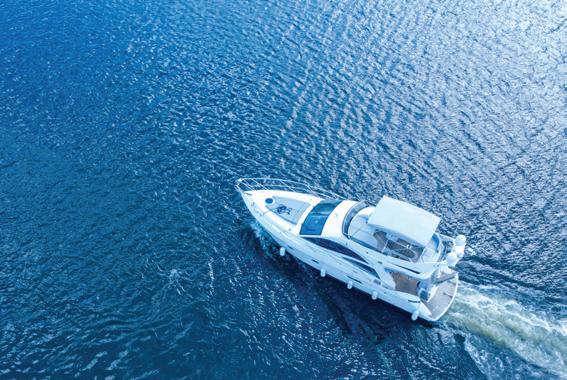
At the end of the day, before you decide to get into this business talk with some legitimate charter captains and even have a conversation with someone knowledgeable in the Coast Guard. A couple of minutes now can save you untold hours and thousands of wasted dollars doing it the wrong way.
'Til our wakes cross again, peace and love, and shrimp and grits. I'll see you on the water!
Captain Gator has spent the past several decades truly living the salt life, from living on and racing sailboats, to being a paddle guide, to becoming a 100-ton master and working in the tour boat industry. A strong love of history and the water has shaped him into becoming one part educator, one part entertainer, and one part storyteller. When asked if he is a native, his reply is yes, by osmosis.
TheOriginalCaptainGator@gmail.com




